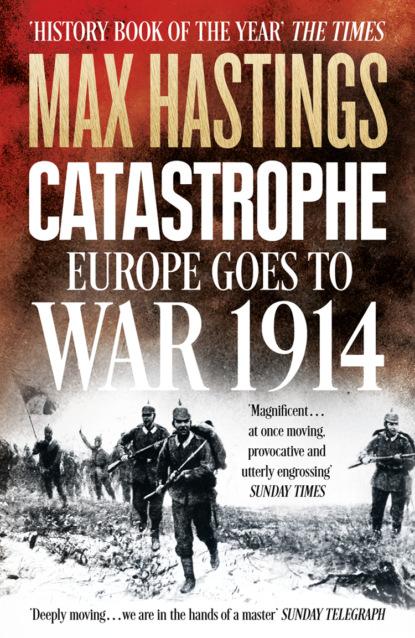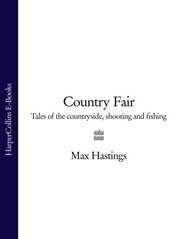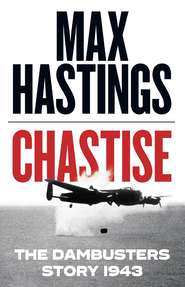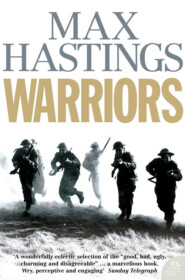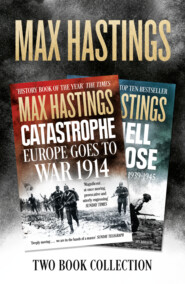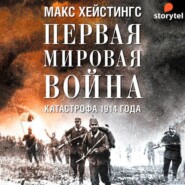По всем вопросам обращайтесь на: info@litportal.ru
(©) 2003-2024.
✖
Catastrophe: Europe Goes to War 1914
Настройки чтения
Размер шрифта
Высота строк
Поля
Next day, Sunday the 14th, Austria’s foreign minister and most important politician, Count Leopold Berchtold, visited Konopiště with his wife. The Berchtolds were fabulously rich, and lived the smart life to the full. They were enthusiastic racehorse-owners, and that spring one of their yearling fillies had won the prized Con Amore handicap at Freudenau. Nandine, the Countess, was a childhood friend of Sophie Hohenburg. The visitors arrived at the castle for breakfast, spent the day looking at the garden and paintings, of which the Count was considered a connoisseur, then caught an evening train back to Vienna, never to meet their hosts again.
The Archduke’s political and social views were conservative and vigorously expressed. After attending Edward VII’s 1910 funeral in London, he wrote home deploring the boorishness of most of his fellow sovereigns, and the alleged impertinence of some politicians present, notable among them ex-US president Theodore Roosevelt. It is sometimes suggested that Franz Ferdinand was an intelligent man. Even if this was so, like so many royal personages into modern times, he was corrupted by position, which empowered him to express opinions unenlightened even by contemporary standards.
He loathed Hungarians, telling the Kaiser: ‘the so-called noble, gentlemanly Magyar is a most infamous, anti-dynastic, lying, unreliable fellow’. He regarded southern Slavs as sub-humans, referring to the Serbians as ‘those pigs’. He hankered after recovering Lombardy and Venetia, lost to Italy in his lifetime, for the Hapsburg Empire. Visiting Russia in 1891, Franz Ferdinand declared that its autocracy offered ‘an admirable model’. Tsar Nicholas II recoiled from Franz Ferdinand’s intemperance, especially on racial matters. Both the Archduke and his wife were strongly Catholic, favouring Jesuits and professing hostility towards Freemasons, Jews and liberals. Such was Sophie’s religious fervour that in 1901 she led two hundred fashionable women on a Catholic march through Vienna.
The Archduke nonetheless cherished one prudent conviction: while many Austrians, notably including army chief of staff Gen. Conrad von Hötzendorf, detested Russia and welcomed the prospect of a battlefield showdown with the Tsar, Franz Ferdinand dissented. He was determined, he said repeatedly, to avoid a clash of arms. Desiring a ‘concord of emperors’, he wrote: ‘I shall never lead a war against Russia. I shall make sacrifices to avoid it. A war between Austria and Russia would end either with the overthrow of the Romanovs or with the overthrow of the Habsburgs – or perhaps the overthrow of both.’ He once wrote to Berchtold: ‘Excellency! Don’t let yourself be influenced by Conrad – ever! Not an iota of support for any of his yappings at the Emperor! Naturally he wants every possible war, every kind of hooray! rashness that will conquer Serbia and God knows what else … Through war he wants to make up for the mess that’s his responsibility at least in part. Therefore: let’s not play Balkan warriors ourselves. Let’s not stoop to this hooliganism. Let’s stay aloof and watch the scum bash in each other’s skulls. It’d be unforgivable, insane, to start something that would pit us against Russia.’
Franz Ferdinand, although as prone as Kaiser Wilhelm to outbursts of violent rhetoric, was a less reckless actor. Had the Archduke been alive when the decisive confrontation with Russia came, it is likely that his influence would have been wielded to avert war. As it was he was dead, because he insisted upon making an official visit to one of the most turbulent and perilous regions his uncle ruled. Every European monarchy shared a belief that ownership of large territories – empire – was a critical measure of virility and grandeur. While the colonies of Britain and France lay far away across oceans, those of the Hapsburgs and Romanovs were next door. Hungarian coins bore an abbreviation of the inscription ‘Francis Joseph by the Grace of God Emperor of Austria and Hungary, Croatia, Slavonia, Dalmatia, Apostolic King’. In 1908 Austria-Hungary annexed Bosnia and Herzegovina, rousing Russian fury. The twin provinces, former Ottoman possessions with mingled Serb and Muslim populations, had been Austrian-occupied since 1878, under a mandate conceded by the Congress of Berlin, but most Bosnians bitterly resented their subjection.
In 1913, a foreign diplomat exclaimed despairingly of the Austro-Hungarians: ‘Never have I seen people so determined to work against their own interests!’ It was an extraordinary folly, for an empire already groaning under the weight of its own contradictions and the frustrations of its oppressed minorities, wilfully to seize Bosnia-Herzegovina. But Franz Joseph still smarted beneath the humiliations of losing his northern Italian dominions soon after he inherited the throne, and of suffering military defeat by Prussia in 1866. The acquisition of new colonies in the Balkans seemed to offer a measure of compensation, as well as frustrating Serbia’s ambitions to incorporate them in a pan-Slav state.
Given the febrile mood in the provinces, it was rash to advertise the schedule for Franz Ferdinand’s visit to Bosnia as early as March. This prompted one of many groups of violent dissidents, the Young Bosnians, a secret society for students of peasant origins, to seize the opportunity to kill him. They reached this resolution perhaps on their own initiative, or perhaps at the behest of puppet-masters in Belgrade: in the absence of concrete evidence, either view is tenable. One of their number was nineteen-year-old Gavrilo Princip. Like many figures who have played such a role in history, Princip spent his short life striving to induce people to overcome their instinct to dismiss him because of his slight stature and colourless personality. In 1912, he volunteered to fight for Serbia in the First Balkan War, only to be rejected as too small. At his first interrogation after achieving notoriety in June 1914, he explained himself by saying, ‘Wherever I went, people took me for a weakling.’
In May, Princip and two fellow conspirators travelled to Belgrade. The city was capital of a young and volatile country, fully independent from the Ottoman Empire only since 1879, a constitutional monarchy that was heart and soul of the pan-Slav movement. Princip knew Serbia well, having lived there for two years. The ‘Young Bosnians’ were provided with four Browning semi-automatic pistols and six bombs by Maj. Vojin Tankosić of Ujedinjenje ili Smrt, a terrorist movement nicknamed ‘the Black Hand’, derived from German and Italian secret societies.
The group was led by the thirty-six-year-old head of military intelligence Col. Dragutin Dimitrijević, familiarly known as ‘Apis’, after the Egyptian bull god. He was the principal personality in one of three factions engaged in a struggle for Serbian domestic mastery. The other two elements were led respectively by Alexander, the Prince Regent – who hated the colonel because he refused to defer to the royal family – and Nikola Pašić, the prime minister. Apis looked the part of a revolutionary fanatic: pale, bald, heavy, enigmatic – like ‘a giant Mongolian’, in the words of a diplomat. He never married, devoting his life to the movement which boasted a hooded initiation ritual and a seal engraved with a skull-and-crossbones flag, a dagger, a bomb and poison. Murder was his business: he had been prominent among a group of young army officers who conducted the 1903 butchery of King Alexander of Serbia and Queen Draga in their own palace bedroom.
The Black Hand’s influence pervaded many Serbian institutions, notably including its army. Pašić, a sixty-nine-year-old of venerable appearance with his white hair and beard, was an inveterate enemy of Apis, some of whose associates in 1913 discussed murdering him. The prime minister and many of his colleagues regarded the colonel as a threat to his country’s stability and even existence; internal affairs minister Milan Protić spoke of the Black Hand to a visitor on 14 June as ‘a menace to democracy’. But in a society riven by competing interests, the civilian government lacked authority to remove or imprison Apis, who was protected by the patronage of the army chief of staff.
Beyond guns, bombs and cyanide suicide capsules, there is no hard evidence about what further support or direction Princip and his comrades received in Belgrade. The assassins went to their graves denying Serbia’s official complicity. It seems overwhelmingly probable that the Black Hand incited and instructed the Young Bosnians for the archducal murder; but all that is certain is that its agents provided them with means to commit terrorist acts in Hapsburg territory. Princip conducted pistol practice in a Belgrade park, then on 27 May enjoyed a farewell dinner with his two co-conspirators, Trifko Grabež and Nedeljko čabrinović, before starting what became an eight-day journey to Sarajevo. Part of Princip’s and Grabež’s route was covered on foot across open country, assisted by a frontier officer instructed by the Black Hand. Yet if Apis was wholly committed to the assassination plot, it is puzzling that the embryo assassin had to pawn his overcoat for a few dinars shortly before leaving Belgrade, to pay his expenses.
Who else knew what? Russia’s ambassador in Belgrade was a fanatical pan-Slavist and friend of the Black Hand, Nikolai Hartwig; it is possible that he was party to the plot. But claims that St Petersburg had prior knowledge of the assassination are unsupported by a shred of evidence, and are hard to credit. The Russian government was strongly hostile to Austria-Hungary because of its persecution of its Slav minorities, but the Tsar and his ministers had no plausible reason to want Franz Ferdinand dead.
The Bosnian peasant who guided Princip and Grabež back into Hapsburg territory – their other partner, čabrinović, travelled independently – was a Serbian government informer, who passed word about their movements, and about the bombs and pistols in their luggage, to the Interior Ministry in Belgrade. His report, which the prime minister read and summarised in his own hand, made no mention of a plot against Franz Ferdinand. Pašić commissioned an investigation, and gave orders that the movement of weapons from Serbia into Bosnia should be stopped; but he went no further. A Serbian minister later claimed that Pašić told the cabinet at the end of May or the beginning of June that some assassins were on their way to Sarajevo to kill Franz Ferdinand. Whether or not this is true – no minutes were taken of cabinet meetings – Pašić appears to have instructed Serbia’s envoy in Vienna to pass on to the Austrian authorities only a vague general warning, perhaps because he was unwilling to provide the Hapsburgs with a fresh and extremely serious grievance against his country.
Serbians played something of the same violent role on the margin of the Hapsburg Empire as did Irish factions in the affairs of Britain at several periods of the twentieth century, though the latter proved more resilient. Chronic Serb brutality towards their own minorities, especially Muslims, was a poor advertisement for the state. Some historians believe that its rulers were so intimately involved in terrorism, and explicitly in the conspiracy against Franz Ferdinand, that the country should be considered a rogue state. This view, once again, relies upon circumstantial evidence and speculation. Given the hostility between Apis and Pašić, it seems unlikely that they would have forged a common front to encompass the death of the Archduke.
Even without forewarning from Belgrade, the Austrian authorities had the strongest reasons to anticipate violent protest or some murderous attempt against Franz Ferdinand, who himself fully recognised the danger. Leaving his estate at Chlumetz on 23 June, he and his wife were obliged to begin their trip to Bosnia in a first-class compartment of the Vienna express, because the axles of his automobile were overheating. He said crossly: ‘Our journey starts with an extremely promising omen. Here our car burns, and down there they will throw bombs at us.’ The pre-1914 era was characterised by endemic acts of terrorism, especially in the Balkans, which were the butt of condescending British humour: a Punch joke had one anarchist asking another: ‘What time is it by your bomb?’ Saki penned a black-comic short story about an outrage – ‘The Easter Egg’. Both Joseph Conrad and Henry James wrote novels about terrorists.
For the Hapsburgs, such matters were commonplaces. Franz Joseph’s semi-estranged wife, the Empress Elisabeth, had been stabbed to death by an Italian anarchist while boarding a steamer at Geneva in 1898. Ten years later in Lemberg, a twenty-year-old Ukrainian student assassinated the governor of Galicia, Count Potocki, crying out, ‘This is your punishment for our sufferings.’ The judge at the trial of a Croat who shot at another Hapsburg grandee asked the terrorist, who had been born in Wisconsin, if he thought killing people was justified. The man replied: ‘In this case it is. It is the general opinion in America, and behind me are 500,000 American Croats. I am not the last among them … These actions against the lives of dignitaries are our only weapon.’ On 3 June 1908 Bogdan Žerajić, a young Bosnian, intended to shoot the Emperor in Mostar, but relented at the last moment. Instead he travelled to Sarajevo, fired several times at Gen. Marijan Varešanin, then – wrongly supposing that he had killed him – shot himself with his last bullet. It was later alleged, though never proven, that the Black Hand had provided the revolver. The Austrian police sawed off the terrorist’s head for preservation in their black museum.
In June 1912 a schoolboy shot at the governor of Croatia in Zagreb, missing his target but wounding a member of the imperial administration. In March 1914 the vicar-general of Transylvania was killed by a time-bomb sent through the post by Romanians. Yet Franz Ferdinand was capable of seeing the funny side of the threat: while watching military manoeuvres one day, his staff succumbed to panic when a dishevelled figure suddenly sprang from a bush clutching a large black object. The Archduke laughed heartily: ‘Oh, let him shoot me. That’s his job – he’s a court photographer. Let him make a living!’
There was nothing comic, however, about the obvious threat in Bosnia. The Austrian police had detected and frustrated several previous conspiracies. Gavrilo Princip was known to be associated with ‘anti-state activities’. Yet when he registered himself in Sarajevo as a new visitor, nothing was done to monitor his activities. Gen. Oskar Potiorek, governor of Bosnia, was responsible for security for the royal visit. The chief of his political department warned about the threat from the Young Bosnians, but Potiorek mocked the man ‘for having a fear of children’. Officials were later said to have devoted more energy to discussing dinner menus, and the correct temperature at which to serve the wines, than to the guest of honour’s safety. Official negligence alone gave Princip and his friends their chance.
On the evening of 27 June, though Franz Ferdinand and Sophie were not scheduled to enter Sarajevo until next day, on an impulse they drove into the town, an exotic half-oriental community of some 42,000 people, to visit craft shops, including a carpet stall, watched by a crowd that included Princip. The couple thoroughly enjoyed themselves. In the spa town of Ilidže later that evening Dr Josip Sunarić, a prominent member of the Bosnian parliament who had urged cancelling the visit, was presented to the Duchess. She reproached him, saying, ‘My dear Dr Sunarić, you are wrong after all. Things do not always turn out the way you say they will. Wherever we have been everyone, down to the last Serb, has greeted us with such great friendliness, politeness and true warmth, that we are very happy with our visit.’ Sunarić answered, ‘Your Highness, I pray to God that when I have the honour of meeting you again tomorrow night, you can repeat those words. A great burden will be lifted from me.’
That night a banquet was held for the Archduke at Ilidže’s Hotel Bosna: guests were served potage régence, soufflés délicieux, blanquette de truite à la gelée, chicken, lamb, beef, crème aux ananas en surprise, cheese, ice cream and bon-bons. They drank Madeira, Tokay and Bosnian Žilavka. Next morning before leaving for Sarajevo, Franz Ferdinand sent a telegram to his elder son Max, congratulating the boy on his exam results at Schotten Academy. He and Sophie adored their children: he was never happier than when sharing their toys in the playroom at Konopiště. This was the couple’s fourteenth wedding anniversary, and also a date pregnant with painful significance for Serbs – the anniversary of their 1389 defeat by the Ottomans at Kosovo.
The Archduke set forth in the dress uniform of a cavalry general – sky-blue tunic, gold collar with three silver stars, black trousers with a red stripe, surmounted by a helmet with green peacock feathers. Sophie, a buxom, stately figure, wore a white picture hat with a veil, a long white silk dress with red and white fabric roses tucked into a red sash, an ermine stole on her shoulders. Late on the morning of the 28th, in accordance with the published schedule, the archducal motorcade left Sarajevo station. Seven Young Bosnian killers had deployed themselves to cover each of three river bridges, one of which Franz Ferdinand was sure to cross.
The royal automobiles passed through what the Catholic archbishop later described as ‘a regular avenue of assassins’. Shortly before reaching its first scheduled stop, a bomb thrown by Nedeljko čabrinović, a printer, struck Franz Ferdinand’s car, but bounced off the folded hood before it exploded, wounding two of the archducal suite. čabrinović was seized and led away after making a half-hearted attempt to kill himself. He declared proudly, ‘I am a Serbian hero.’ Most of the other conspirators failed to use their weapons, later making assorted excuses for loss of nerve. The Archduke drove on to the town hall, where he displayed understandable exasperation when obliged to listen patiently to a pre-scripted speech of welcome. As the party re-entered their vehicles, he said he wished to visit the officers injured by čabrinović’s bomb. At the entry to Franz Joseph Street Gen. Potiorek, in the front seat of the archducal motor, expostulated: the driver was going the wrong way. The car stopped. It had no reverse gear, and thus had to be pushed backwards onto the Appel Quay, immediately alongside the spot where Princip stood.
The young man drew and raised his pistol, then fired twice. Another conspirator, Mihajlo Pucará, kicked a detective who saw what was happening and sought to intervene. Sophie and Franz Ferdinand were both hit from a range of a few feet. She immediately slumped in death, while he muttered, ‘Sophie, Sophie, don’t die – stay alive for our children.’ Those were his last words: he expired soon after 11 a.m. Princip was seized by the crowd. Pucará, a strikingly handsome young man who had rejected an offered role at Belgrade’s National Theatre in favour of a career in terrorism, grappled with an officer who tried to attack Princip with his sabre. Another young man, Ferdinand Behr, also did his best to save the assassin from retribution.
The plot to kill the Archduke was absurdly amateurish, and succeeded only because of the failure of the Austrian authorities to adopt elementary precautions in a hostile environment. This in turn raises the question: did the killing really represent the best effort of Apis, the arch-conspirator, or merely an almost casual, anarchic sideswipe at Hapsburg rule? No conclusive answer is possible, but the investigating judge at Sarajevo District Court, Leo Pfeffer, thought on his first glimpse of Princip that ‘it was difficult to imagine that so frail-looking an individual could have committed so serious a deed’. The young assassin was at pains to explain that he had not intended to kill the Duchess as well as the Archduke: ‘a bullet does not go precisely where one wishes’. Indeed, it is astonishing that even at close range Princip’s pistol killed two people with two shots – handgun wounds are frequently non-fatal.
In the first forty-eight hours after the killings, more than two hundred leading Serbs in Bosnia were arrested and taken to join Princip and čabrinović in the military prison. Several peasants were hanged out of hand. Within days all the conspirators were in custody except a Muslim carpenter, Mehmed Mehmedbašić, who escaped to Montenegro. By the end of July 5,000 Serbs had been jailed, of whom about 150 were hanged when hostilities subsequently began. Auxiliaries of the Austrian Schutzkorps militia exacted summary vengeance from many more Muslims and Croats. At the trial which began in October, Princip, čabrinović and Grabež were sentenced to twenty years’ imprisonment – as minors, they escaped capital punishment. Three others received jail terms, while five were hanged on 3 February 1915, and four more accessories received terms from three years to life. Nine of the accused were freed, including some peasants whom Princip said he had forced to help him.
Word of the deaths of the Archduke and his wife swept across the Empire that day, and thereafter across Europe. At Vienna’s Aspern airfield, the band was playing a new tune, ‘The Airmen’s March’, in the midst of a flying display when at 3 p.m. the proceedings were abruptly terminated on receiving the tidings from Sarajevo. The Emperor Franz Joseph was at Ischl when his adjutant-general Graf von Paar brought him news of the murders. He received it with no visible emotion, but decided to eat his dinner alone.
The Kaiser was attending Kiel Regatta. A launch approached the royal yacht, which Wilhelm attempted to wave away. Instead it closed in, carrying Georg von Müller, chief of the Kaiser’s naval cabinet. The admiral placed a note in his cigarette case and threw it up to the Hohenzollern’s deck, where a sailor caught it and carried it to the Emperor. Wilhelm took the case, read its message, turned pale and murmured: ‘Everything has to start again!’ The Kaiser was among the few men in Europe who personally liked Franz Ferdinand; he had lavished emotional capital on their relationship, and was genuinely grieved by his passing. He gave orders to abandon the regatta. Rear-Admiral Albert Hopman, chief of the Imperial Naval Office’s central staff, was also at Kiel, just leaving a lunch at which the British ambassador had been a fellow guest, when he heard a report that Franz Ferdinand had ‘died suddenly’. At nightfall, having learned the exact circumstances, he wrote of ‘a dreadful act of which the political consequences are incalculable’.
But most of Europe received the news with equanimity, because acts of terrorism were so familiar. In St Petersburg, British correspondent Arthur Ransome’s Russian friends dismissed the assassinations as ‘a characteristic bit of Balkan savagery’, as did most people in London. In Paris another journalist, Raymond Recouly of Le Figaro, recorded a general view that ‘the crisis in progress would soon recede into the category of Balkan squabbles, such as recurred every fifteen or twenty years, and were sorted out among the Balkan peoples themselves, without any of the great powers needing to become entangled’. President Raymond Poincaré was at Longchamps races, where reports of the shots in Sarajevo did not impede his enjoyment of the running of the Grand Prix. Two days later in a Prussian school, twelve-year-old Elfriede Kuhr and her classmates peered at newspaper photographs of the assassin and his victim. ‘Princip is better-looking than that fat pig Franz Ferdinand,’ she observed mischievously, though her classmates deplored her flippancy.
The Archduke’s funeral service, in the stifling heat of the Hofburgpfarrkirch, lasted just fifteen minutes, following which Franz Joseph resumed his cure at Ischl. The old Emperor made little pretence of sorrow about his nephew’s death, though he was full of rage about its manner. Most of his subjects shared his sentiments, or lack of them. On 29 June in Vienna, Professor Josef Redlich noted in his diary: ‘there is no sense of grief in the town. Music has been playing everywhere.’ The London Times reported the funeral on 1 July in terms measured to the point of somnolence. Its Vienna correspondent asserted that ‘so far as the press is concerned, there is a remarkable absence of any inclination that revenge should be taken upon the Serbs of the Monarchy as a whole for the misdeeds of what is believed to be a small minority … With regard to Serbia also the utterances of the press are on the whole remarkably restrained.’
Foreign observers expressed surprise that Viennese mourning for the heir to the imperial throne was perfunctory and patently insincere. It was thus ironic that the Hapsburg government scarcely hesitated before taking a decision to exploit the assassinations as a justification for invading Serbia, even at the cost of provoking an armed collision with Russia. And Princip had killed the one man in the Empire committed to avert this.
1 (#ulink_ff073dd7-44bd-5b86-988e-f45f94bc9c02)
‘A Feeling that Events are in the Air’ (#ulink_ff073dd7-44bd-5b86-988e-f45f94bc9c02)
1 CHANGE AND DECAY (#ulink_4d814199-9f74-5a44-83c5-6ad29f45b039)
One day in 1895, a young British army officer lunched in London with the old statesman Sir William Harcourt. After a conversation in which the guest took, by his own account, none too modest a share, Lt. Winston Churchill – for it was he – asked Harcourt eagerly, ‘What will happen then?’ His host replied with inimitably Victorian complacency: ‘My dear Winston, the experiences of a long life have convinced me that nothing ever happens.’ Sepia-tinted photographs exercise a fascination for modern generations, enhanced by the serenity which long plate exposures imposed upon their subjects. We cherish images of old Europe during the last years before war: aristocrats attired in coronets and ball gowns, white ties and tails; Balkan peasants in pantaloons and fezzes; haughty, doomed royal family groups.
Young men with moustaches, smoking pipes, clad in the inevitable straw hats, poling punts occupied by reclining girls with bobbed hair and high collars, suggest an idyll before the storm. In polite circles even language was tightly corseted: the words ‘damn’ and ‘bloody’ were impermissible, and more extreme epithets were unusual between men and women save in the most intimate circumstances. ‘Decent’ was an adjective of high praise, ‘rotter’ a noun of profound condemnation. Fifty years later British writer and war veteran Reginald Pound asserted: ‘The sardonic objectivity of our latter-day school of historians can neither penetrate nor dissipate the golden haze of that singular time. For all its rampant injustices, its soaring unearned incomes, its abounding wretchedness, its drunkenness galore, the people knew a kind of untainted happiness that has since gone from the world.’
Yet even though Pound was there and we were not, it is hard to accept his view. Only a man or woman who chose to be blind to the extraordinary happenings in the world could suppose the early years of the twentieth century an era of tranquillity, still less contentment. Rather, they hosted a ferment of passions and frustrations, scientific and industrial novelties, irreconcilable political ambitions, which caused many of the era’s principals to recognise that the old order could not hold. To be sure, dukes were still attended by footmen wearing white hair-powder; smart households were accustomed to eat dinners of ten or twelve courses; on the continent duelling was not quite extinct. But it was plain that these things were coming to an end, that the future would be arbitrated by the will of the masses or those skilled in manipulating it, not by the whims of the traditional ruling caste, even if those who held power strove to postpone the deluge.
It is a conceit of our own times to suppose that we are obliged to live, and national leaderships to make decisions, amid unprecedentedly rapid change. Yet between 1900 and 1914, technological, social and political advances swept Europe and America on a scale unknown in any such previous timespan, the blink of an eye in human experience. Einstein promulgated his special theory of relativity. Marie Curie isolated radium and Leo Baekeland invented Bakelite, the first synthetic polymer. Telephones, gramophones, motor vehicles, cinema performances and electrified homes became commonplace among affluent people in the world’s richer societies. Mass-circulation newspapers soared to unprecedented social influence and political power.
In 1903 man first achieved powered flight; five years later, Ferdinand Count Zeppelin lyricised the mission to secure unrestricted passage across the skies, an increasingly plausible prospect: ‘Only therewith can the divine ancient command be fulfilled … [that] creation should be subjugated by mankind.’ At sea, following the 1906 launch of the Royal Navy’s Dreadnought, all capital ships lacking its heavy ordnance mounted in power-driven turrets became obsolete, unfit to join a fleet line of battle. The range at which squadrons expected to exchange fire, a few thousand yards when admirals were cadets, now stretched to tens of miles. Submarines were recognised as potent weapons. Ashore, while the American Civil War and not the First World War was the first great conflict of the industrial age, in the interval between the two the technology of destruction made dramatic advances: machine-guns achieved reliability and efficiency, artillery increased its killing power. It was realised that barbed wire could be employed to check the movements of soldiers as effectively as those of beasts. Much speculation about the future character of war was nonetheless mistaken. An anonymous 1908 article in the German publication Militär-Wochenblatt asserted that the 1904–05 Russo-Japanese experience in Manchuria ‘proved that even well-defended fortifications and entrenchments can be taken, even across open ground, by courage and cunning exploitation of terrain … The concept of states waging war to the point of absolute exhaustion is beyond the European cultural experience.’
Socialism became a major force in every continental state, while Liberalism entered historic decline. The revolt of women against statutory subjection emerged as a significant issue, especially in Britain. Across Europe real wages rose almost 50 per cent between 1890 and 1912, child mortality declined and nutrition greatly improved. But despite such advances – or, in accordance with de Tocqueville’s view that misery becomes less acceptable when no longer absolute, because of them – tens of millions of workers recoiled from the inequalities of society. Industries in Russia, France, Germany and Britain were convulsed by strikes, sometimes violent, which spread alarm and even terror among the ruling classes. In 1905 Russia experienced its first major revolution. Germany displaced France and Russia as the British Empire’s most plausible enemy. Britain, which had been the world’s first industrialised nation, saw its share of global manufacturing fall from one-third in 1870 to one-seventh in 1913.
All this took place within a similar modest timescale to that dividing us today from the 2001 terrorist assaults on the United States. Social historian and politician Charles Masterman mused in 1909 about his uncertainty ‘whether civilization is about to blossom into flowers, or wither in a tangle of dead leaves and faded gold … whether we are about to plunge into a new period of tumult and upheaval or whether a door is to be suddenly opened, revealing unimaginable glories’. Austrian writer Carl von Lang wrote early in 1914: ‘There is a feeling that events are in the air; all that is unpredictable is their timing. Perhaps we shall see several more years of peace, but it is equally possible that overnight some tremendous upheaval will happen.’
It is unsurprising that the wing-collared statesmen of Europe found it difficult to adjust their thinking and conduct to the new age into which they were so abruptly thrust, to the acceleration of communication which transformed human affairs, and to an increase of military destructive power which few understood. Horse-and-carriage diplomacy, like governance by crowned heads selected by accident of birth, proved wholly inadequate to address a crisis of the electric age. Winston Churchill wrote in 1930: ‘Scarcely anything material or established which I was brought up to believe was permanent or vital has lasted. Everything I was sure or taught to be sure was impossible, has happened.’
Between 1815 and 1870 Russia, Prussia, Austria and France carried about equal weight on the world stage, behind Britain. Thereafter the new Germany powered ahead, becoming recognised as by far the most successful continental nation, world leader in almost every industrial sphere from pharmaceuticals to automobile technology, and a social pioneer in promoting health insurance and old-age pensions. Some British jingos allowed the vastness of their empire to delude them about the primacy of their own little country, but economists coolly measured its eclipse by America and Germany as both manufacturer and trader, with France ranking fourth. All the major nations acknowledged as a proper ambition the maximisation of their own greatness and territorial possessions. Only Britain and France favoured maintenance of the status quo abroad, because their own imperial ambitions were sated.
Others chafed. In May 1912 Lt. Col. Alick Russell, the British military attaché in Berlin, expressed concern about the febrile mood he identified. There was, he thought, ‘an uncomfortable feeling in German hearts that the army of the Fatherland is gaining a reputation for being unwilling to fight, an intense irritation at what is considered French arrogance and the apparently inevitable hostility of ourselves’. Put together, he suggested, ‘we obtain a sum of national sentiment, which might on occasion turn the scale, when the issue of peace or war was hanging in the balance’. Russell’s concern about German volatility, sometimes trending towards hysteria, was reflected in all his dispatches, and increased during the two years that followed.
Contrary to the belief of their neighbours, however, many German people had no enthusiasm for war. The country was approaching a constitutional crisis. The Social Democratic Party which dominated the Reichstag – the German socialist movement was the largest in the world – was deeply hostile to militarism. Early in 1914, the British naval attaché reported with some surprise that Reichstag navy debates were sparsely attended; only between twenty and fifty members turned up, who gossiped incessantly during speeches. The industrial working class was profoundly alienated from a government composed of conservative ministers appointed for their personal acceptability to the Kaiser.
But Germany, if no longer an absolutist state on the Russian model, remained more of a militarised autocracy than a democracy. Its most powerful institution was the army, and its crowned head loved to surround himself with soldiers. On 18 October 1913, Kaiser Wilhelm II decreed large-scale celebrations for the centenary of the victory at Leipzig, the ‘Battle of the Nations’ against Bonaparte. Following royal example, German department stores surrendered generous floorspace to commemorative dioramas. The marketplace was lavishly endowed with militaristically-tinted products. A harmonica named ‘Wandervogel’, in honour of an Austro-German youth hiking movement of that name, was sold in a military postal service box. A best-selling harp was inscribed with the words: ‘Durch Kampf zum Sieg’ – ‘Through Battle to Victory’. Gertrud Schädla, a twenty-seven-year-old teacher living in a small town near Bremen, described in her May 1914 diary a fund-raising event for the Red Cross: ‘I am quite interested in this – how could I not be, having three brothers liable to military call-up? More than that, I have recognised the critical nature of its work since I read a life of Florence Nightingale, and because I know from Paul Rohrbach’s interesting book German World Policies how grave and how constant is the threat of war facing us.’
Wilhelm II presided over an empire unified only in his lifetime, which had achieved immense economic strength, but remained prey to insecurities which its ruler personified. He had no real thirst for blood, but a taste for panoply and posturing, a craving for martial success; he displayed many of the characteristics of a uniformed version of Kenneth Grahame’s Mr Toad. Visitors remarked the notably homoerotic atmosphere at court, where the Kaiser greeted male intimates such as the Duke of Württemberg with a kiss on the lips. In the first decade of the century, the court and army were convulsed by a series of homosexual scandals almost as traumatic as was the Dreyfus Affair for France. In 1908, Dietrich Graf von Hülsen-Haeseler, chief of the Kaiser’s military secretariat, died of a heart attack while performing an after-dinner pas seul dressed in a ballet tutu before a Black Forest shooting-lodge audience which included the Emperor himself.
And while Wilhelm’s intimate circle displayed a taste for the grotesque, he himself pursued enthusiasms with tireless lack of judgement; most of his contemporaries, including the statesmen of Europe, thought him mildly unhinged, and this was probably clinically the case. Christopher Clark has written: ‘He was an extreme exemplar of that Edwardian social category, the club bore who is forever explaining some pet project to the man in the next chair. Small wonder that the prospect of being buttonholed by the Kaiser over lunch or dinner, when escape was impossible, struck fear into the hearts of so many European royals.’ Rear-Admiral Albert Hopman, a shrewd and iconoclastic naval officer, wrote of the Kaiser in May 1914: ‘He is vanity itself, sacrificing everything to his own moods and childish amusements, and nobody checks him in doing so. I ask myself how people with blood rather than water in their veins can bear to be around him.’ Hopman described to his diary a strange dream on the night of 18 June 1914: ‘I stood in front of a castle … There I saw the old, broken-down Kaiser Wilhelm [I], talking to some people while holding a sabre stuck in its scabbard. I walked towards him, supported him, and led him into the castle. As I did so he said to me: “You must draw the sword … My grandson [Wilhelm II] is too feeble [to do so].”’
All Europe’s monarchs were wild cards in the doom game played out in 1914, but Wilhelm was the wildest of all. Bismarck’s legacy to his country was a dysfunctional polity in which the will of the German people, expressed in the composition of the Reichstag, was trumped by the powers of the Emperor, his appointed ministers and the army’s chief of staff. Jonathan Steinberg describes the era inaugurated by Wilhelm’s dismissal of his chancellor in 1890, soon after assuming the throne: ‘Bismarck … left a system which only he – a very abnormal person – could govern and then only if he had as superior a normal Kaiser. [Thereafter] neither condition obtained, and the system slithered into the sycophancy, intrigue and bluster that made the Kaiser’s Germany a danger to its neighbours.’ Max Weber, who was born into that era, wrote similarly of Bismarck: ‘He left a nation totally without political education … totally bereft of political will. It had grown accustomed to submit patiently and fatalistically to whatever was decided for it in the name of monarchical government.’
Democratic influence was strongest on domestic financial matters, weakest on foreign policy, which was deeply secretive, conducted by ministers who were the Kaiser’s personal appointees, heedless of the balance of representation in the Reichstag, with variable but critical influence from the army.
The Hohenzollerns got everything wrong socially. The Crown Prince returned from a 1913 fox-hunting tour of England convinced – quite mistakenly – of Germany’s popularity with that country’s ruling class. His father, with his withered arm and obsession with the minutiae of military uniforms and regulations, was a brittle personality whose yearning for respect caused him to intersperse blandishments and threats in ill-judged succession. Wilhelm once demanded of the imperialist Cecil Rhodes: ‘Now tell me, Rhodes, why is it that I am not popular in England? What can I do to make myself popular?’ Rhodes answered: ‘Suppose you just try doing nothing.’ The Kaiser hesitated, then exploded into heavy laughter. It was beyond his powers to heed such advice. In 1908 Wilhelm scrawled a marginal note on a dispatch from his ambassador in London: ‘If they want a war, they may start it, we are not afraid of it!’





